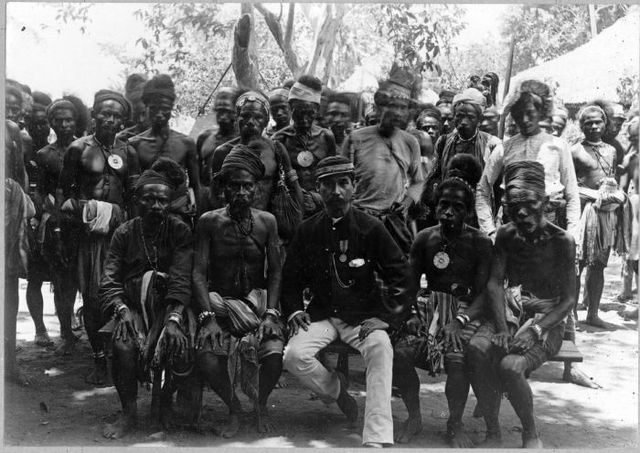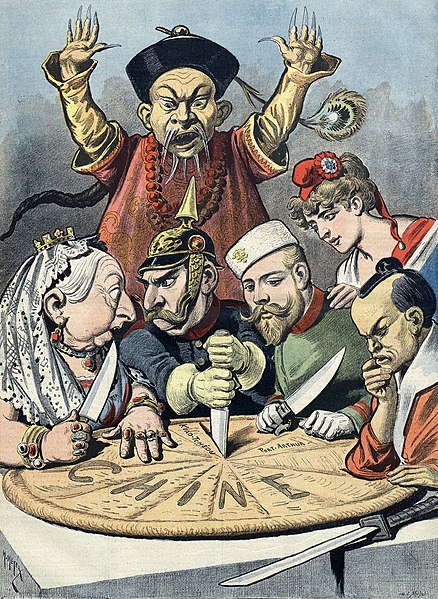The Scramble for Africa was the invasion and colonisation of most of Africa by seven Western European powers during the era of "New Imperialism" (1833–1914). In 1870, 10% of the continent was formally under European control. By 1914, this figure had risen to almost 90%, with only Liberia and Ethiopia retaining their full sovereignty.
Contemporary French propaganda poster hailing Major Marchand's trek across Africa toward Fashoda in 1898
David Livingstone, early explorer of the interior of Africa and fighter against the slave trade
The Askari colonial troops in German East Africa, c. 1906
Italian aircraft in action against Ottoman forces during the Italian invasion of Libya in the Italo-Turkish War
In historical contexts, New Imperialism characterizes a period of colonial expansion by European powers, the United States, and Japan during the late 19th and early 20th centuries. The period featured an unprecedented pursuit of overseas territorial acquisitions. At the time, states focused on building their empires with new technological advances and developments, expanding their territory through conquest, and exploiting the resources of the subjugated countries. During the era of New Imperialism, the European powers individually conquered almost all of Africa and parts of Asia. The new wave of imperialism reflected ongoing rivalries among the great powers, the economic desire for new resources and markets, and a "civilizing mission" ethos. Many of the colonies established during this era gained independence during the era of decolonization that followed World War II.
British Prime Minister Benjamin Disraeli and Queen Victoria
Indigenous African soldier pledging alliance to the Spanish flag. European armies would regularly enlist natives to garrison their own land.
Colonial government official J. Rozet, an Indo Eurasian, in negotiation with tribal chiefs (Roti Islanders), Pariti, Timor, 1896.
A shocked mandarin in official robes in the back, with Queen Victoria (Britain),Wilhelm II (Germany), Nicholas II (Russia), Marianne (France), and a samurai (Japan) discussing how to cut up Chine ("China" in French).








